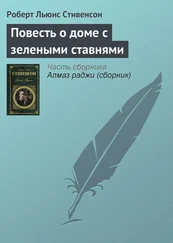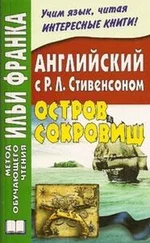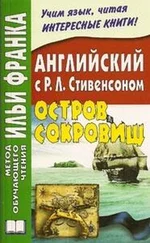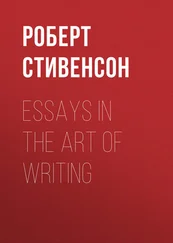Роберт Стивенсон - Essays of Travel
Здесь есть возможность читать онлайн «Роберт Стивенсон - Essays of Travel» — ознакомительный отрывок электронной книги совершенно бесплатно, а после прочтения отрывка купить полную версию. В некоторых случаях можно слушать аудио, скачать через торрент в формате fb2 и присутствует краткое содержание. Жанр: literature_19, foreign_antique, foreign_prose, Путешествия и география, на английском языке. Описание произведения, (предисловие) а так же отзывы посетителей доступны на портале библиотеки ЛибКат.
- Название:Essays of Travel
- Автор:
- Жанр:
- Год:неизвестен
- ISBN:нет данных
- Рейтинг книги:3 / 5. Голосов: 1
-
Избранное:Добавить в избранное
- Отзывы:
-
Ваша оценка:
- 60
- 1
- 2
- 3
- 4
- 5
Essays of Travel: краткое содержание, описание и аннотация
Предлагаем к чтению аннотацию, описание, краткое содержание или предисловие (зависит от того, что написал сам автор книги «Essays of Travel»). Если вы не нашли необходимую информацию о книге — напишите в комментариях, мы постараемся отыскать её.
Essays of Travel — читать онлайн ознакомительный отрывок
Ниже представлен текст книги, разбитый по страницам. Система сохранения места последней прочитанной страницы, позволяет с удобством читать онлайн бесплатно книгу «Essays of Travel», без необходимости каждый раз заново искать на чём Вы остановились. Поставьте закладку, и сможете в любой момент перейти на страницу, на которой закончили чтение.
Интервал:
Закладка:
One of the stewards was often enough to be found about this hour down our companion, Steerage No. 2 and 3; that was his smoking-room of a night. Let me call him Blackwood. O’Reilly and I rattled down the companion, breathing hurry; and in his shirt-sleeves and perched across the carpenters bench upon one thigh, found Blackwood; a neat, bright, dapper, Glasgow-looking man, with a bead of an eye and a rank twang in his speech. I forget who was with him, but the pair were enjoying a deliberate talk over their pipes. I dare say he was tired with his day’s work, and eminently comfortable at that moment; and the truth is, I did not stop to consider his feelings, but told my story in a breath.
‘Steward,’ said I, ‘there’s a man lying bad with cramp, and I can’t find the doctor.’
He turned upon me as pert as a sparrow, but with a black look that is the prerogative of man; and taking his pipe out of his mouth —
‘That’s none of my business,’ said he. ‘I don’t care.’
I could have strangled the little ruffian where he sat. The thought of his cabin civility and cabin tips filled me with indignation. I glanced at O’Reilly; he was pale and quivering, and looked like assault and battery, every inch of him. But we had a better card than violence.
‘You will have to make it your business,’ said I, ‘for I am sent to you by the officer on the bridge.’
Blackwood was fairly tripped. He made no answer, but put out his pipe, gave me one murderous look, and set off upon his errand strolling. From that day forward, I should say, he improved to me in courtesy, as though he had repented his evil speech and were anxious to leave a better impression.
When we got on deck again, Jones was still beside the sick man; and two or three late stragglers had gathered round, and were offering suggestions. One proposed to give the patient water, which was promptly negatived. Another bade us hold him up; he himself prayed to be let lie; but as it was at least as well to keep him off the streaming decks, O’Reilly and I supported him between us. It was only by main force that we did so, and neither an easy nor an agreeable duty; for he fought in his paroxysms like a frightened child, and moaned miserably when he resigned himself to our control.
‘O let me lie!’ he pleaded. ‘I’ll no’ get better anyway.’ And then, with a moan that went to my heart, ‘O why did I come upon this miserable journey?’
I was reminded of the song which I had heard a little while before in the close, tossing steerage: ‘O why left I my hame?’
Meantime Jones, relieved of his immediate charge, had gone off to the galley, where we could see a light. There he found a belated cook scouring pans by the radiance of two lanterns, and one of these he sought to borrow. The scullion was backward. ‘Was it one of the crew?’ he asked. And when Jones, smitten with my theory, had assured him that it was a fireman, he reluctantly left his scouring and came towards us at an easy pace, with one of the lanterns swinging from his finger. The light, as it reached the spot, showed us an elderly man, thick-set, and grizzled with years; but the shifting and coarse shadows concealed from us the expression and even the design of his face.
So soon as the cook set eyes on him he gave a sort of whistle.
‘ It’s only a passenger !’ said he; and turning about, made, lantern and all, for the galley.
‘He’s a man anyway,’ cried Jones in indignation.
‘Nobody said he was a woman,’ said a gruff voice, which I recognised for that of the bo’s’un.
All this while there was no word of Blackwood or the doctor; and now the officer came to our side of the ship and asked, over the hurricane-deck rails, if the doctor were not yet come. We told him not.
‘No?’ he repeated with a breathing of anger; and we saw him hurry aft in person.
Ten minutes after the doctor made his appearance deliberately enough and examined our patient with the lantern. He made little of the case, had the man brought aft to the dispensary, dosed him, and sent him forward to his bunk. Two of his neighbours in the steerage had now come to our assistance, expressing loud sorrow that such ‘a fine cheery body’ should be sick; and these, claiming a sort of possession, took him entirely under their own care. The drug had probably relieved him, for he struggled no more, and was led along plaintive and patient, but protesting. His heart recoiled at the thought of the steerage. ‘O let me lie down upon the bieldy side,’ he cried; ‘O dinna take me down!’ And again: ‘O why did ever I come upon this miserable voyage?’ And yet once more, with a gasp and a wailing prolongation of the fourth word: ‘I had no call to come.’ But there he was; and by the doctor’s orders and the kind force of his two shipmates disappeared down the companion of Steerage No. 1 into the den allotted him.
At the foot of our own companion, just where I found Blackwood, Jones and the bo’s’un were now engaged in talk. This last was a gruff, cruel-looking seaman, who must have passed near half a century upon the seas; square-headed, goat-bearded, with heavy blond eyebrows, and an eye without radiance, but inflexibly steady and hard. I had not forgotten his rough speech; but I remembered also that he had helped us about the lantern; and now seeing him in conversation with Jones, and being choked with indignation, I proceeded to blow off my steam.
‘Well,’ said I, ‘I make you my compliments upon your steward,’ and furiously narrated what had happened.
‘I’ve nothing to do with him,’ replied the bo’s’un. ‘They’re all alike. They wouldn’t mind if they saw you all lying dead one upon the top of another.’
This was enough. A very little humanity went a long way with me after the experience of the evening. A sympathy grew up at once between the bo’s’un and myself; and that night, and during the next few days, I learned to appreciate him better. He was a remarkable type, and not at all the kind of man you find in books. He had been at Sebastopol under English colours; and again in a States ship, ‘after the Alabama , and praying God we shouldn’t find her.’ He was a high Tory and a high Englishman. No manufacturer could have held opinions more hostile to the working man and his strikes. ‘The workmen,’ he said, ‘think nothing of their country. They think of nothing but themselves. They’re damned greedy, selfish fellows.’ He would not hear of the decadence of England. ‘They say they send us beef from America,’ he argued; ‘but who pays for it? All the money in the world’s in England.’ The Royal Navy was the best of possible services, according to him. ‘Anyway the officers are gentlemen,’ said he; ‘and you can’t get hazed to death by a damned non-commissioned – as you can in the army.’ Among nations, England was the first; then came France. He respected the French navy and liked the French people; and if he were forced to make a new choice in life, ‘by God, he would try Frenchmen!’ For all his looks and rough, cold manners, I observed that children were never frightened by him; they divined him at once to be a friend; and one night when he had chalked his hand and clothes, it was incongruous to hear this formidable old salt chuckling over his boyish monkey trick.
In the morning, my first thought was of the sick man. I was afraid I should not recognise him, baffling had been the light of the lantern; and found myself unable to decide if he were Scots, English, or Irish. He had certainly employed north-country words and elisions; but the accent and the pronunciation seemed unfamiliar and incongruous in my ear.
To descend on an empty stomach into Steerage No. 1, was an adventure that required some nerve. The stench was atrocious; each respiration tasted in the throat like some horrible kind of cheese; and the squalid aspect of the place was aggravated by so many people worming themselves into their clothes in twilight of the bunks. You may guess if I was pleased, not only for him, but for myself also, when I heard that the sick man was better and had gone on deck.
Читать дальшеИнтервал:
Закладка:
Похожие книги на «Essays of Travel»
Представляем Вашему вниманию похожие книги на «Essays of Travel» списком для выбора. Мы отобрали схожую по названию и смыслу литературу в надежде предоставить читателям больше вариантов отыскать новые, интересные, ещё непрочитанные произведения.
Обсуждение, отзывы о книге «Essays of Travel» и просто собственные мнения читателей. Оставьте ваши комментарии, напишите, что Вы думаете о произведении, его смысле или главных героях. Укажите что конкретно понравилось, а что нет, и почему Вы так считаете.










